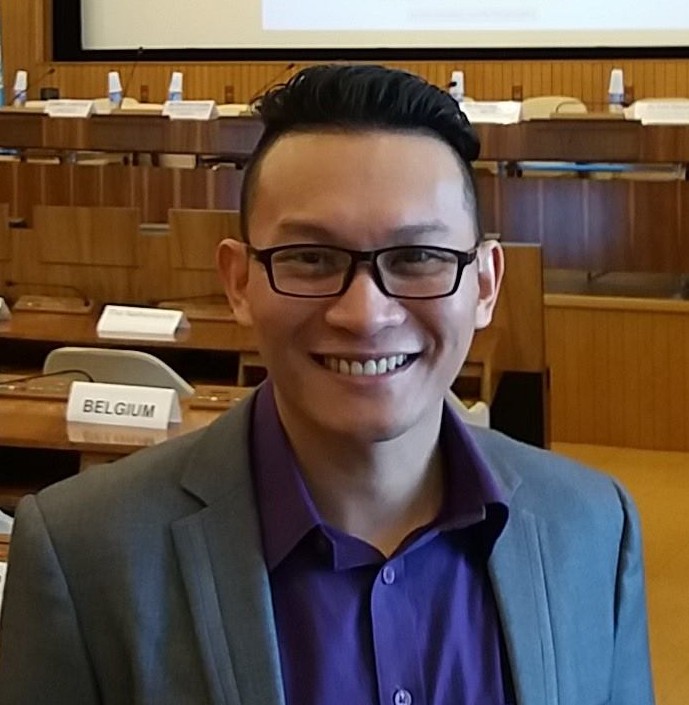

Activists worldwide, including myself, were all holding our breaths while governments deliberated on a crucial UN resolution aimed at advancing the human rights of lesbian, gay, bisexual, transgender, intersex, and queer (LGBTIQ) persons.
The resolution sought to extend the mandate of the UN Independent Expert on the Protection from Violence Based on Sexual Orientation and Gender Identity (IESOGI). The mandate was first established as a result of a 2016 United Nations Human Rights Council (UNHRC) resolution.
It had key roles, such as producing reports that document discrimination and violence based on sexual orientation and gender identity (SOGI), receiving communications from individuals and groups concerning allegations of discrimination and violence based on SOGI, and engaging with different stakeholders such as governments, civil society organizations, and UN agencies to share good practices and progress in advancing the rights of LGBTIQ persons.
The IESOGI could also conduct country visits to obtain reliable information on the situation of LGBTI persons. Such had already been carried out in countries like Argentina, Georgia, Mozambique, and Ukraine.
Why it's important
Defending the IESOGI mandate is a fight to ensure that each LGBTIQ person worldwide is equally protected before universally recognized human rights laws. This means that LGBTIQ persons have access to a mechanism that can provide redress when faced with persecution. This also means that there is an entity that can “constructively engage” governments, give them advice, or perhaps a smack, when they run short of their human rights commitments.
As expected, the resolution faced massive opposition. There were 10 hostile amendments issued by Pakistan and other member states of the Organization for Islamic Cooperation (OIC). These amendments had an insidious agenda: erase SOGI entirely from existing human rights frameworks, downplay LGBTI issues as merely “social matters” of “private individual conduct” that are not human rights concerns, and justify discrimination and violence on grounds for respect for “religion and ethical values and cultural backgrounds.”
The opposition brandished its hostility further by arguing that LGBTI concerns are divisive and polarizing, framing LGBTI advocacy as hostile to the intent and purpose of the United Nations. Pakistan warned that “imposition of concepts or notions that fall outside the scope of universally recognized human rights framework is a deliberate assault against the integrity of the international human rights system.” Bangladesh insisted that LGBTI human rights are not recognized by existing international human rights frameworks. Egypt attacked the terms “sexual orientation” and “gender identity” as controversial concepts that lack universal consensus and have no basis in international human rights law. Saudi Arabia, echoing the hostility, cautioned that the UN’s role is to honor each other’s religion and belief rather than imposing controversial concepts such as SOGI.
A rainbow shone after a stormy opposition. The resolution was passed: 27 affirmative votes, 12 negative votes, and 7 abstentions.
The Philippines voted yes to the resolution, dramatically shifting from its abstain vote in the 2016 UNHRC resolution on SOGI and distancing itself from its previous foreign policy of “strategic silence” on SOGI concerns. This sparkling change is much more interesting than China’s, which has only worn indifference by maintaining a “no” vote since 2016.
Rainbow
It must be recalled that back in 2016, the Philippines abstained because it was not ready to support a mechanism within the UN whose work is to “pursue a set of standards applied to a specific sector when there is no consensus on the set of universally accepted human rights standards specific to that sector.” Diplomatic rhetoric aside, the Philippine government believed that there was no universally recognized human rights framework that protected people from SOGI-based violence and discrimination.
The Philippines did not give any explanation behind the affirmative vote. Some quarters were cautious that such vote indirectly “pinkwashes” the country’s bloody human rights record. However, to think such belittles the efforts of Filipino LGBTIQ advocates – equally human rights advocates – who consistently lobbied the government for weeks leading to the vote.
This victory at the UN sends a bright reminder about a dire problem for us activists. Our claim that LGBTIQ persons are entitled to human rights, which is echoed in our domestic advocacy work for an anti-discrimination legislation and policies, rests on shaky ground. This claim is still contested even within the UN.
Now that the UNHRC resolution has been passed, activists are encouraged to maximize the IESOGI mandate. We are called to send reports about cases or incidences of SOGI-based violence and discrimination. Share good practices in advancing LGBTIQ human rights, as this will help the IESOGI mandate holder to “constructively engage” with governments. Ask the Philippine government to officially invite the IESOGI to do a country visit and conduct a first-hand assessment on how the country is truly accepting or not.
A rainbow glitters after the stormy opposition at the UN against the resolution concerning the IESOGI. As to how long the light will stay will all depend on the sterling commitment of people – most visible and rousing during Pride Month – to fight for the beautiful cause of the rights of LGBTIQ persons. – Rappler.com
Ryan V. Silverio is the current Regional Coordinator of the ASEAN Sexual Orientation, Gender Identity, and Gender Expression (SOGIE) Caucus. He has been involved in LGBTIQ activism in the Philippines for more than a decade where he helped organized pride marches in Metro Manila and conducted human rights education with youth activists. He holds a Master of Arts in Human Rights degree from Mahidol University in Thailand.